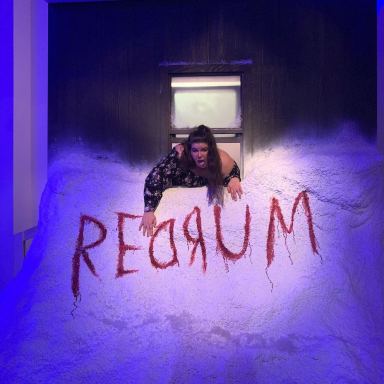53+ Detective Movies
These detectives lead the audience on serious or silly whodunit adventures.
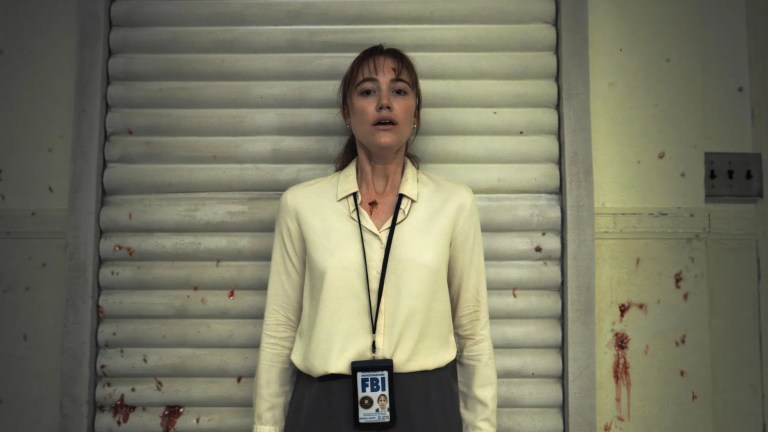
Table of Contents
The detective genre was invented in 1841 with Edgar Allan Poe’s short story “The Murders in the Rue Morgue.” C. Auguste Dupin, the sleuth assigned to solve the case, would also appear in the Poe story “The Mystery of Marie Roget.” Both of these stories were later–like, a hundred years later–made into movies.
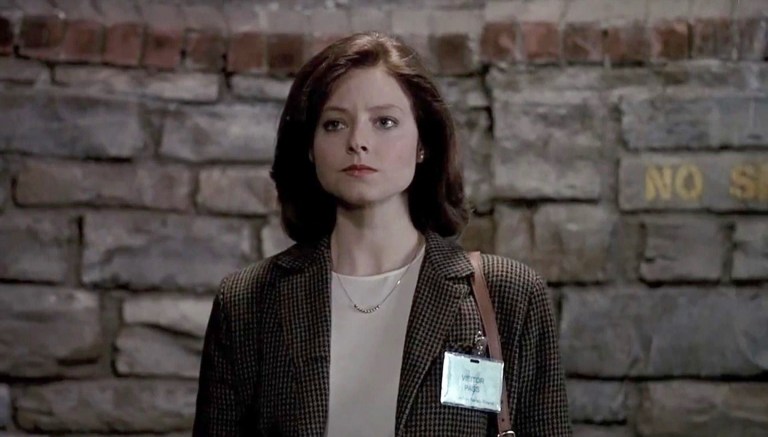
Many of the famous literary detectives found a second life and a new audience in film. As of late 2022, IMDb listed a whopping 52 movies featuring Sir Arthur Conan Doyle’s legendary detective Sherlock Holmes and his partner Dr. John Watson. It lists 11 movies featuring Raymond Chandler’s hardboiled detective Philip Marlowe and five with Dashiell Hammett’s detective Sam Spade. These films go all the way back to the silent era to the present.
This list catalogs the best detective movies, from noir to comedy to horror — every genre has contributed to this inventory of cinema’s best sleuth stories.
Table of Contents
Old Detective Movies
The Maltese Falcon (1941)
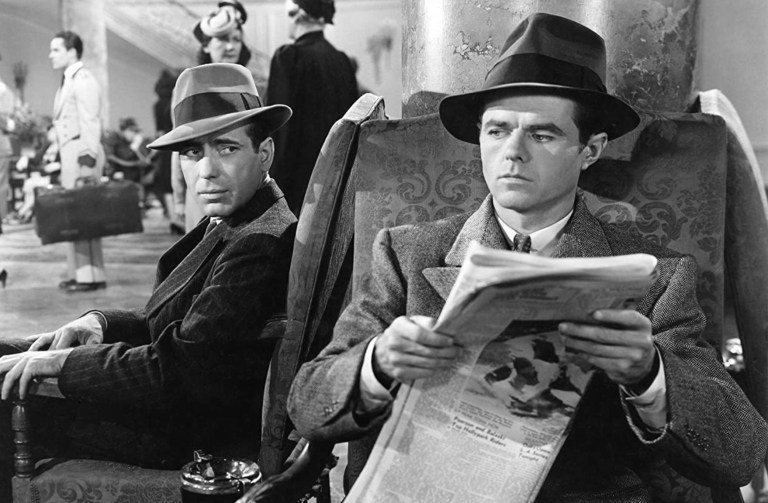
The Maltese Falcon stars Humphrey Bogart in a career-making performance as Sam Spade, a cynical San Francisco detective who decides to take on a case involving the theft of a gold-encrusted life-sized falcon. This decision entangles him in a dark web involving a beautiful femme fatale named Miss Wonderly (Brigid O’Shaughnessy) and shady underworld characters such as Joel Cairo (Peter Lorre) and Kasper Gutman (Sydney Greenstreet). The Maltese Falcon is widely considered to be the first film noir.
The Big Sleep (1946)
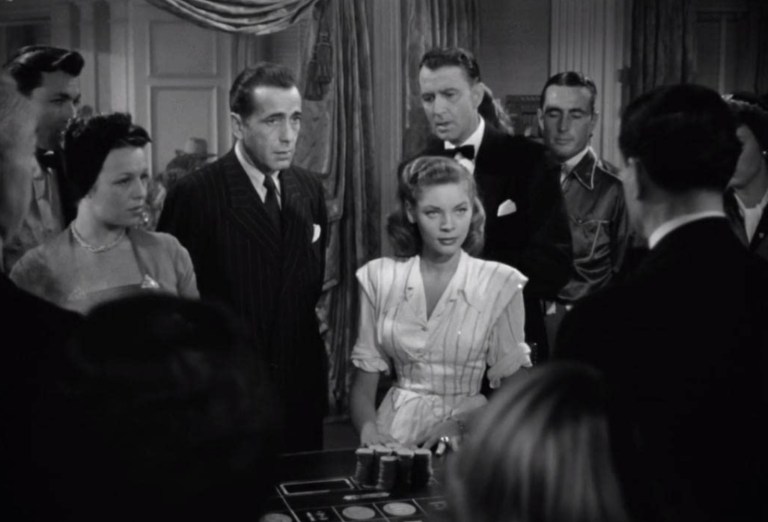
Whereas Dashiell Hammett’s fictional detective was Sam Spade, hardboiled novelist Raymond Chandler’s storybook gumshoe was Philip Marlowe. Humphrey Bogart would wind up playing both private eyes. Marlowe is hired by General Sternwood, a rich but terminally ill man who wants him to unravel a blackmail scheme against his youngest daughter over her unpaid gambling debts. Bogart appears in every scene, often with the camera right behind his shoulder so that you view the proceedings from his perspective.
Vertigo (1958)
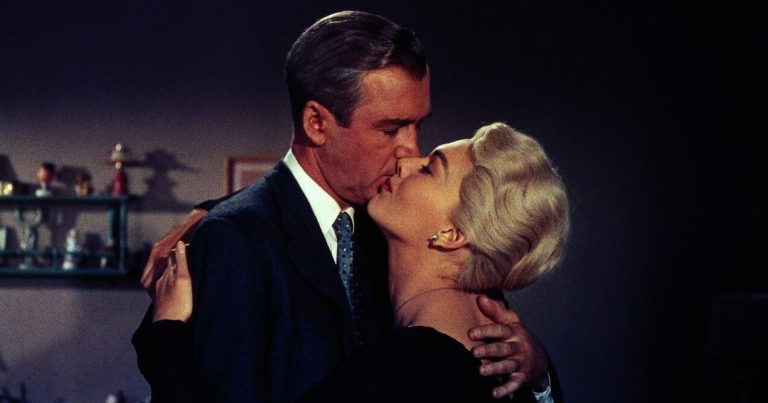
Many critics not only consider Vertigo to be the best film that Alfred Hitchcock ever made, some lists rank it as the greatest film of all time. James Stewart stars as John “Scottie” Ferguson, a San Francisco police detective who has retired from the force due to his morbid fear of heights. A wealthy industrialist hires him to track Madeleine (Kim Novak), his wife whom he fears is going insane and may be possessed with the soul of an ancestor who committed suicide.
The French Connection (1971)
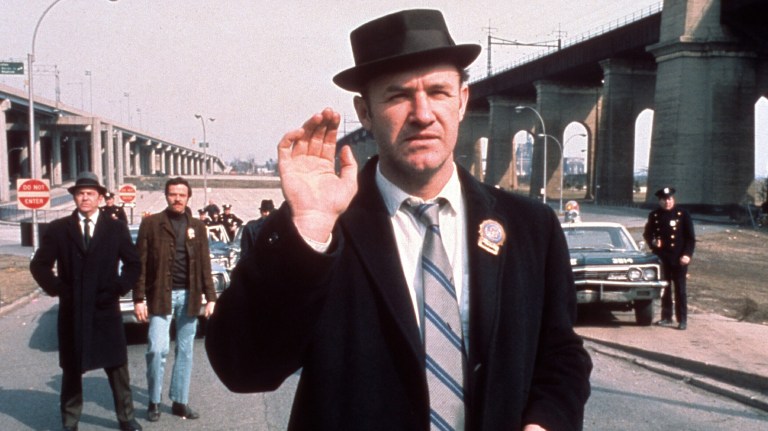
This police procedural action thriller by director William Friedkin won the Academy Award for Best Picture. It also earned Gene Hackman a Best Actor Oscar for his portrayal of Popeye Doyle, a tough and not always ethical NYPD detective. Most of the movie feels like a chase scene as Popeye and his partner never rest in their attempt to thwart a shipment of $32 million of heroin coming in from Marseilles.
Klute (1971)
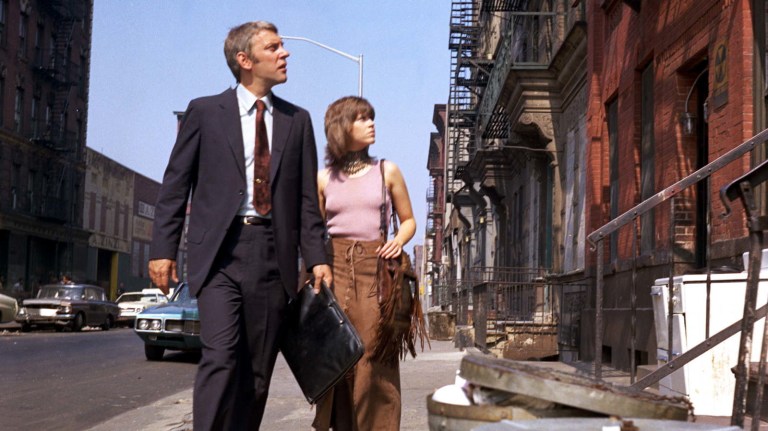
When a Pennsylvania private businessman suddenly disappears, his boss and wife hire detective John Klute (Donald Sutherland) to investigate. The only clue they have is an obscene letter the businessman wrote to Manhattan sex worker Bree Daniels (Jane Fonda in an Oscar-winning performance). Bree tells Klute that she had received strange, sexually themed letters, as well as harassing phone calls from someone. Although Bree is initially skeptical of Klute, the pair gradually find themselves drawn toward one another.
Murder On The Orient Express (1974)
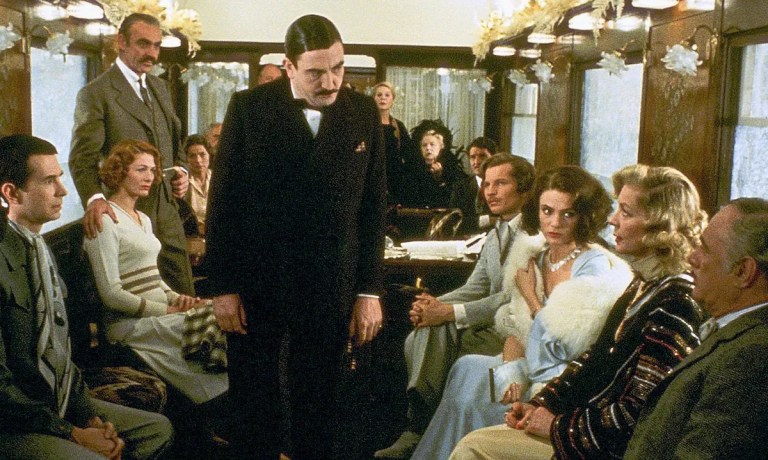
A British mystery film based on the 1934 Agatha Christie novel of the same name as well as an unrelated real-life incident in 1929 where a westbound Orient Express train got stuck in snow for five days near Istanbul. This taut thriller strands passengers together on a train heading out of Istanbul. When a murder occurs on the train, famed Belgian detective Hercule Poirot (Albert Finney) is reluctantly dragged into the case because his friend doesn’t want to get the local police involved.
Chinatown (1974)

Disgraced director Roman Polanski made this celebrated neo-noir film. Private eye Jake Gitte (Jack Nicholson) is hired by femme fatale Evelyn Mulwray (Faye Dunaway) to tail her husband Hollis, a chief engineer for the Los Angeles Department of Water and Power, and see if he’s cheating on her. What Jake discovers is a byzantine plot that goes far beyond a simple case of infidelity.
Farewell, My Lovely (1975)
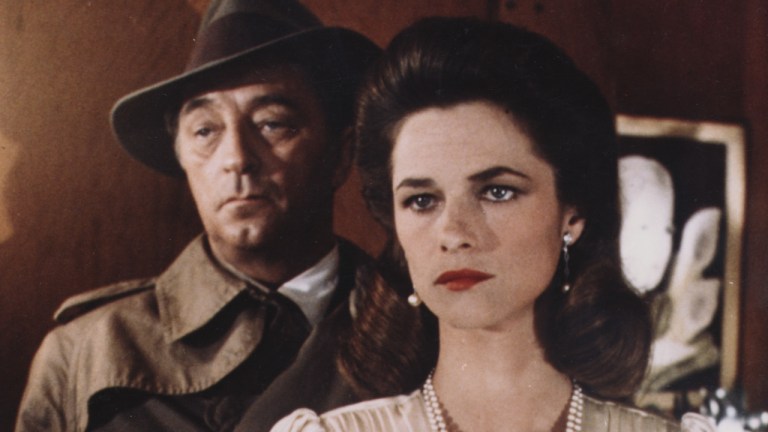
A neo-noir crime thriller that sees private eye Philip Marlow (Robert Mitchum) hired to find an ex-con’s lost sweetheart, a lounge singer (Charlotte Rampling). The case begins to intersect with Marlow’s search for answers about a murdered client. Seven major Hollywood actors–Dick Powell, Humphrey Bogart, Robert Montgomery, George Montgomery, James Garner, Elliott Gould, and Robert Mitchum–have portrayed Raymond Chandler’s ace detective Philip Marlowe, but only Mitchum has played him twice, both in this movie and in The Big Sleep (1978).
Blade Runner (1982)
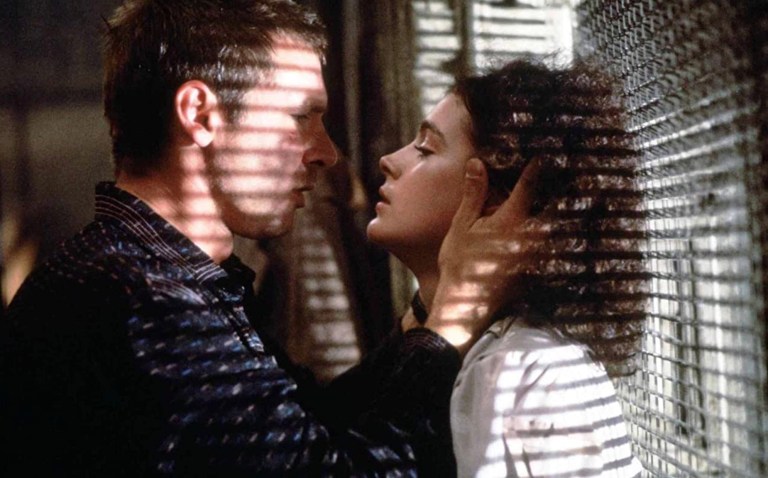
Based very loosely on Philip K. Dick’s 1968 novel Do Androids Dream of Electric Sheep?, Ridley Scott’s dystopian sci-fi is set in LA in 2019. A group of lifelike robots known as “replicants” had been designed to help humanity but were ultimately banned from Earth after staging a mutiny on another planet. The police units who are assigned to destroy any replicant they find on Earth are known as “blade runners.” When four combat-seasoned replicants find their way back to Earth, former blade runner Rick Deckard (Harrison Ford) is dragged out of retirement to confront the menace.
The Silence of the Lambs (1991)

Clarice Starling (Jodie Foster) is an FBI trainee who is privately ashamed of her humble roots in dirt-poor West Virginia. Her boss asks her to question a convicted serial killer named Hannibal Lecter (Anthony Hopkins), a former forensic psychiatrist who had cannibalized his victims. Clarice’s task is to slalom around Lecter’s terrifying presence and adeptness at playing mind games to get his expert opinions about how she might be able to track down a new serial murderer known in the media as “Buffalo Bill.”
Basic Instinct (1992)
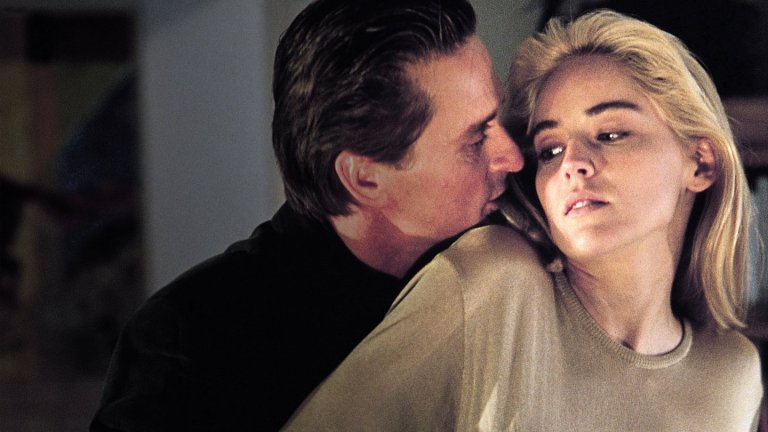
After a rock star is murdered in San Francisco, detective Nick Curran (Michael Douglas) interviews the deceased’s girlfriend, crime novelist Catherine Tramell (Sharon Stone). Trammell is enigmatic and seductive, and Curran takes his eye off the ball (solving the case) in order to have a brief affair with his prime suspect. Basic Instinct is a great murder mystery and one of the best erotic thrillers ever made.
Ace Ventura: Pet Detective (1994)
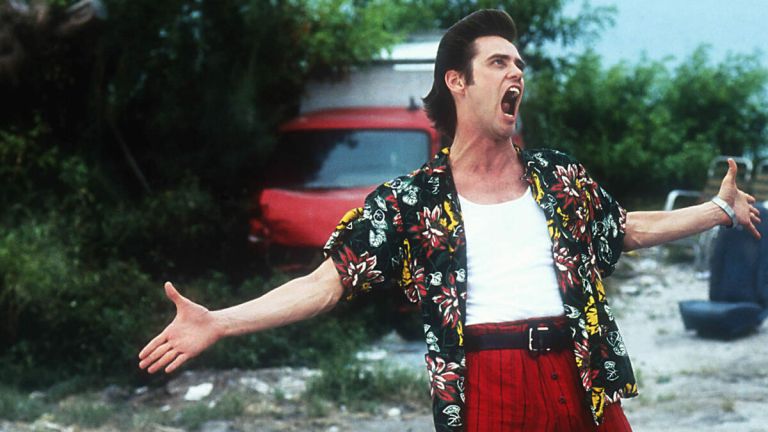
This comedy film stars Jim Carrey in his breakout film role as the title character, a goofy detective who specializes in cases involving pets. Ventura’s latest case involves the kidnapping of the Miami Dolphins’ mascot, a dolphin named Snowflake, two weeks before the team is scheduled to play in the Super Bowl. The Austin Chronicle writes, “Carrey’s caricature of Ventura borrows from all the great detectives: Inspector Clouseau in his ineptitude, Magnum P.I. in his loud Hawaiian shirts, Columbo in his gaucherie, Mission Impossible in a wonderful, out-of-nowhere charade to the TV show’s theme music.”
Se7en (1995)
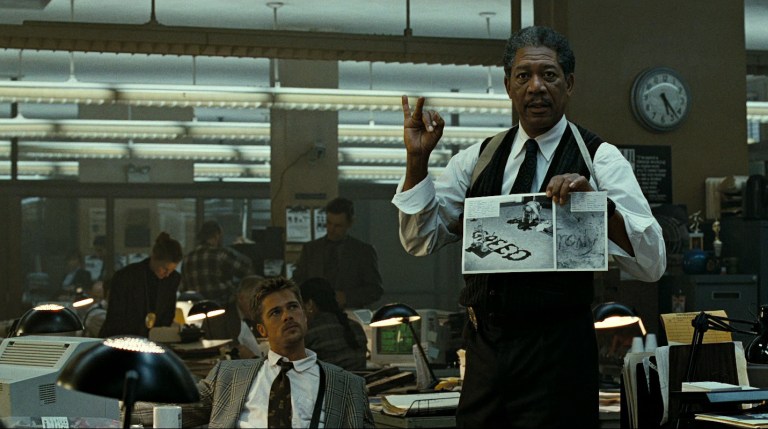
This influential crime thriller directed by David Fincher follows two homicide detectives–one (Brad Pitt) young and impulsive, the other (Morgan Freeman) old and reflective. The partners are assigned to find a serial killer who seems to choose his victims based on the notion of the “seven deadly sins”. The gruesome crime scenes lead them nowhere, though it seems the killer is determined for the two to find him.
See also: 50 Trivia Items About the Movie ‘Seven’ (1995)
Fargo (1996)
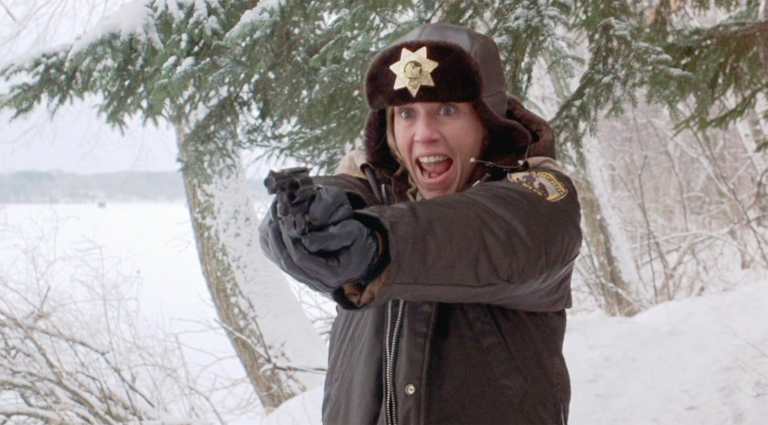
This black comedy film sees Frances McDormand (wife of co-screenwriter Ethan Coen) in an Oscar-winning performance as the folksy and pregnant Minnesota police detective Marge Gunderson. Gunderson is tasked with solving the murders of a state trooper and two witnesses killed in botched traffic stop. Under her gentle yet unremitting questioning, car salesman Jerry Lundegard (William H. Macy) loses his temper with Marge, and she begins to unravel a twisting plot. But everything goes wrong–as wrong as things could possibly go.
Cure (1997)
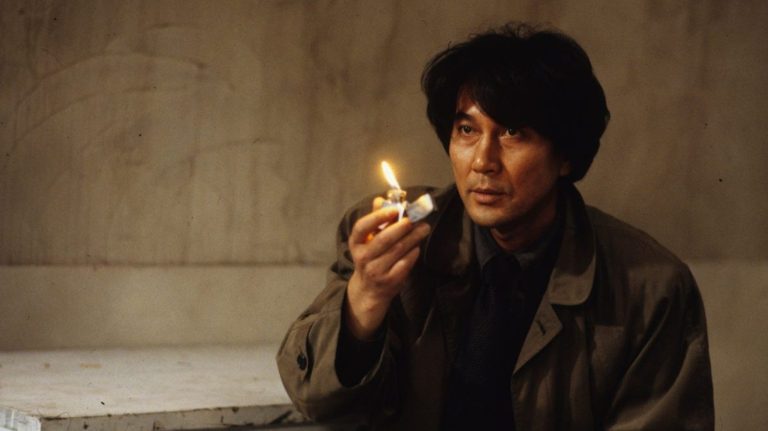
A Japanese psychological horror movie by writer/director Kiyoshi Kurosawa. Cure follows Detective Takabe (Kōji Yakusho) as he searches for answers in a puzzling series of murders in which people with no history of violence suddenly commit murder, carving an ‘X’ into each victim. Although the culprits are easy to find, their motives are non-existent, they describe simply suddenly being compelled to murder. Takabe works with forensic psychologist Sakuma (Tsuyoshi Ujiki) and theorizes that the murderers are somehow being hypnotized into committing acts of extreme violence.
Kiss the Girls (1997)
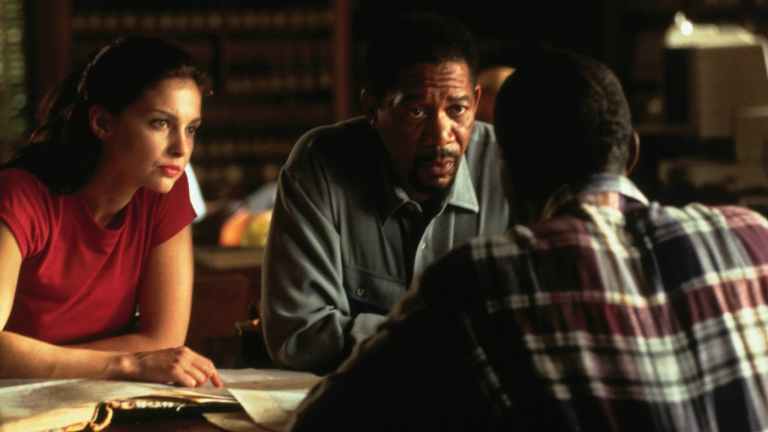
This neo-noir psychological thriller is based on the novel of the same name by James Patterson. It follows Washington, D.C. detective Alex Cross (Morgan Freeman) as he learns of his niece Naomi’s kidnapping and devotes himself to solving the case. He discovers that Naomi’s disappearance is connected to ten other kidnappings in the area, none of which have been solved. Meanwhile, Dr. Kate McTiernan (Ashley Judd) is abducted by the killer and held captive in a cave where other women, including Naomi, are being held in similar cells. When Dr. McTiernan escapes, she works closely with Detective Cross to rescue not only Naomi, but the other women being held captive as well.
A sequel, Along Came a Spider, was released in 2001.
Fallen (1998)
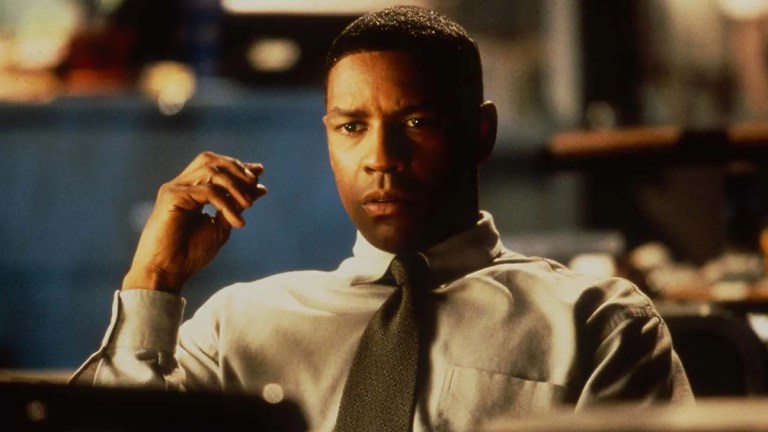
Homicide detective John Hobbes (Denzel Washington) successfully captures serial killer Edgar Reese (Elias Koteas) and later watches his execution. However, murders in the style of Reese’s Modus Operandi begin occurring again. Is it a copycat killer? Or something even more sinister?
The Bone Collector (1999)
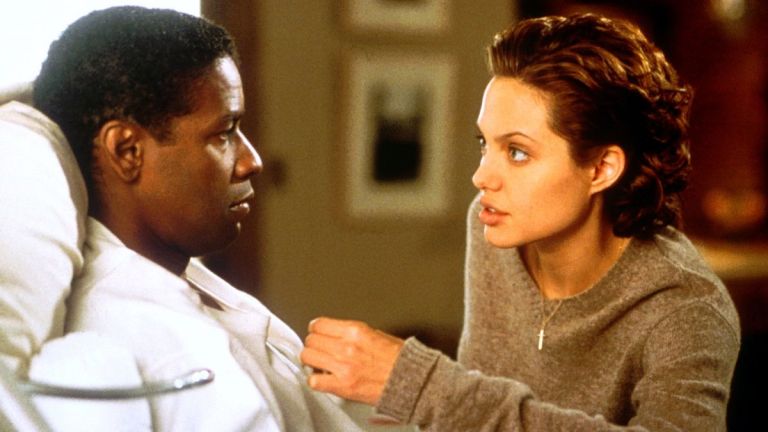
Based on the novel of the same name by Jeffery Deaver, The Bone Collector stars Denzel Washington as quadriplegic forensics expert Lincoln Rhyme. When rookie cop Amelia Donaghy (Angelina Jolie) discovers a corpse, the two work together to find the identity of the murderer. Because of his injury, Rhyme is confined to his bed and relies on technology to research the case and communicate with Amelia. The killer leaves clues for the detectives at each new murder scene, goading them to solve the case before he strikes again.
In 2020, a television series, Lincoln Rhyme: Hunt for the Bone Collector, was made based on the character of Lincoln Rhyme.
New Detective Movies
The Crimson Rivers (2000)
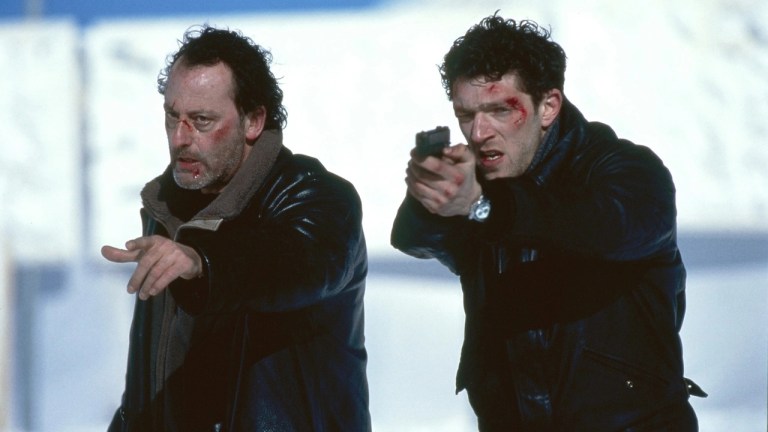
A French psychological thriller about two detectives searching for a serial killer in an isolated valley community in the Alps. Compared to Se7en (1995) and The Silence of the Lambs (1991), this is a great 90s detective movie, but struggles a bit to contextualize the twist-ending. Star Vincent Cassel has said “I can’t help explain the film because I didn’t understand it! We cut out everything in the film that was explanatory, therefore ‘boring’ [according to the director]. You end up with a film that’s not boring but you don’t understand it [at] all.”
Red Dragon (2002)
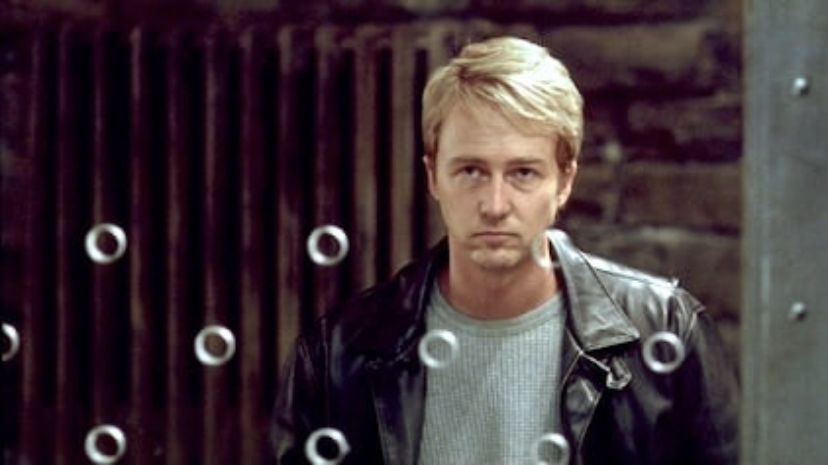
This prequel to The Silence of the Lambs (1991) follows FBI agent Will Graham (Edward Norton), the man who first realized forensic psychiatrist Hannibal Lecter (Anthony Hopkins) was a dangerous cannibalistic serial murderer. Injured during the arrest, Graham retires and relocates his family to Key West to live a quieter life. He is called out of retirement to help the FBI identify a serial killer known as the “Tooth Fairy”, who targets families and kills during the full moon.
Memories of a Murder (2003)
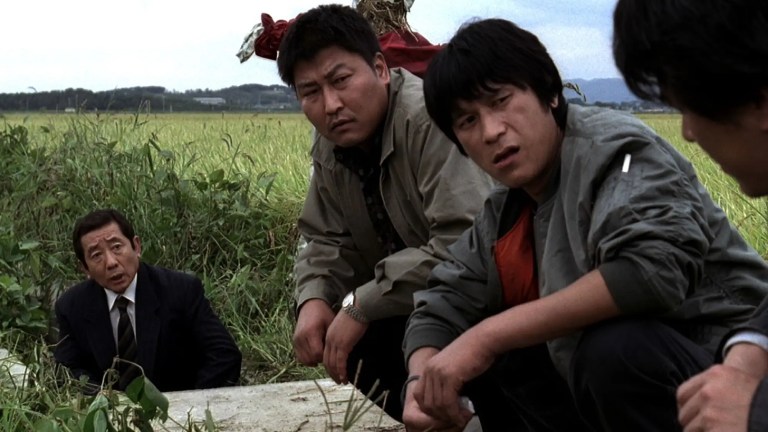
A neo-noir crime thriller directed and co-written by Bong Joon-ho. In the late 80s, inexperienced small town detective Park Doo-man (Song Kang-ho) seeks to find the identity of the person responsible for a string of rapes and murders with the help of Seoul detective Seo Tae-yoon (Kim Sang-kyung). As such sadistic crimes are rare in the area, the detectives struggle to find the killer.
Taking Lives (2004)
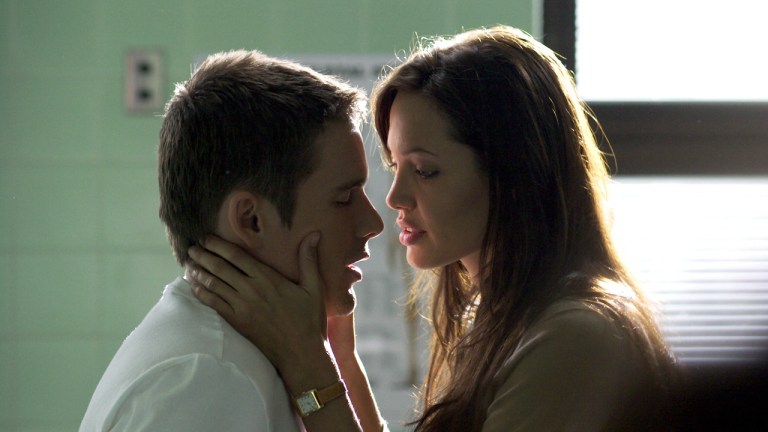
FBI profiler Illeana Scott (Angelina Jolie) travels to Montreal to help Canadian police track down a serial killer who takes on the identity of his victims in order to evade detection. She works with art dealer James (Ethan Hawke), who witnessed the killer and is able to make a drawing that leads detectives to the killer’s apartment (complete with a corpse of one of his victims). Though Illeana is a gifted detective, the killer manages to stay one step ahead of the investigation.
Shutter Island (2010)
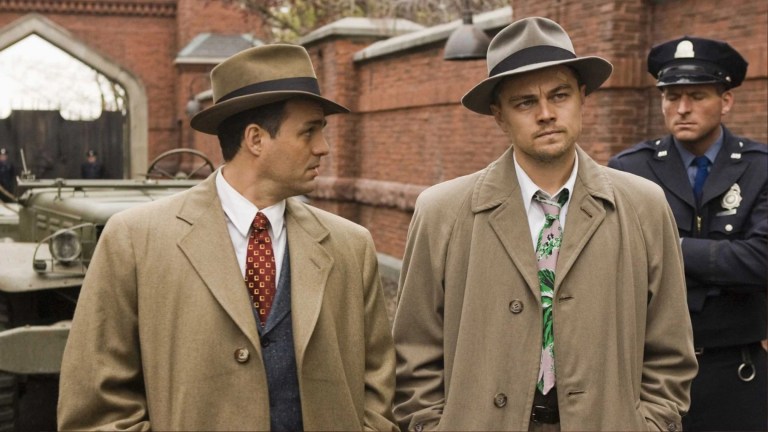
In what would become Martin Scorsese’s most lucrative film up to that time, Leo DiCaprio stars as Federal Marshall Teddy Daniels, who along with his partner Chuck take a boat out to Shutter Island, off the coast near Boston. They have been assigned to search for a missing inmate at the highly fortified asylum on the island. Teddy is a World War II veteran and is still haunted by memories of what he saw when he and his unit liberated Nazi concentration camps. What he sees at the asylum brings back bad memories.
See also: 74+ Best Twist Ending Movies
The Girl with the Dragon Tattoo (2011)
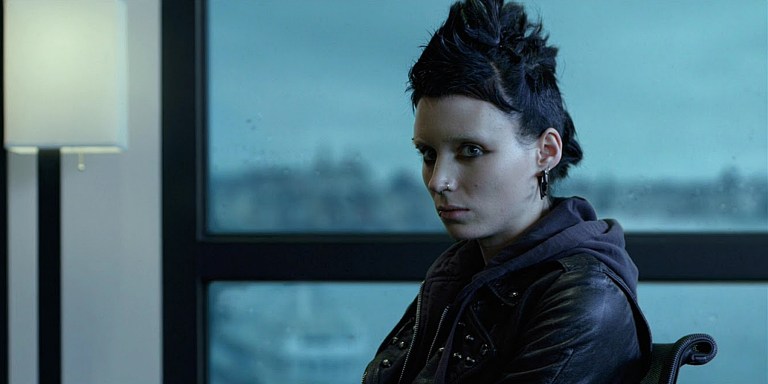
As a result of being successfully sued for libel, former journalist Mikael Blomkvist (Daniel Craig) must find a new career. A rich industrial magnate asks him to write a biography about his family. Underlying this simple request is his burning desire to trace the fate of his grandniece, who disappeared 40 years ago. With the help of a highly skilled hacker named Lisbeth Salander (Rooney Mara), the pair crack the case wide open.
Knives Out (2019)
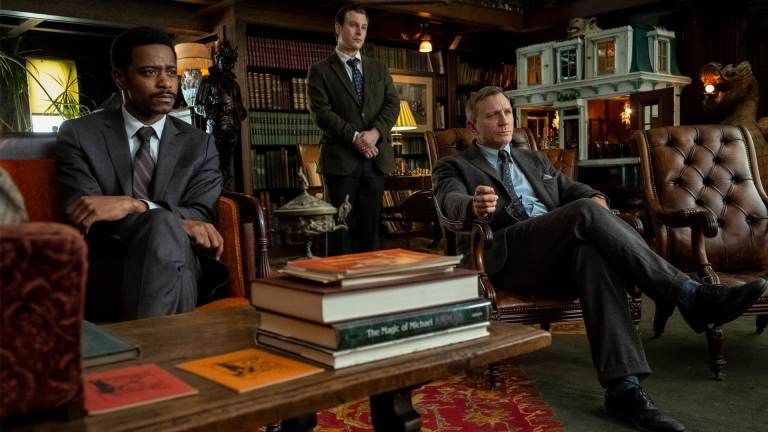
World-famous crime novelist Harlan Thrombey (Christopher Plummer) is found dead the day after he celebrated his 85th birthday with his highly dysfunctional family. Detective Benoit Blanc (Daniel Craig) is hired to investigate. Blanc must also sift through the stacks of lies that Thrombey’s family, as well as his maid, seem to be telling him. It’s hard to find the murderer when everyone is acting like they did it.
Glass Onion (2022)
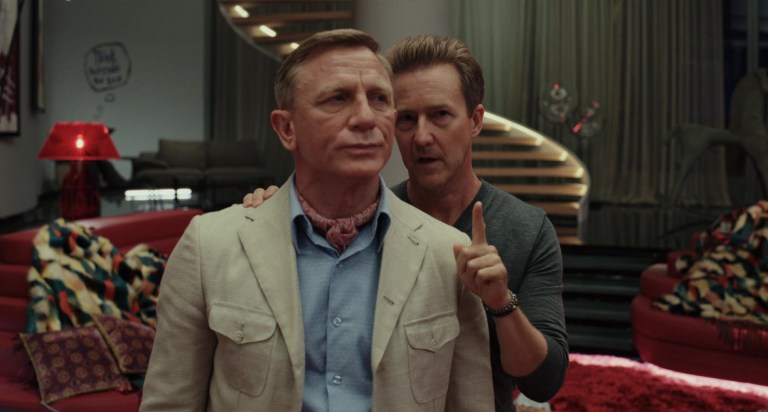
Benoit Blanc (Daniel Craig), the detective first seen in the film Knives Out, joins an eclectic group of “friends” on their excursion to the island mansion of tech billionaire Miles Bron (Edward Norton). Bron plans a murder mystery game for his guests, but someone dies for real, and Blanc reluctantly springs into action. Glass Onion is a smart mystery that hides many clues in plain sight, and shrouds other information in flashbacks that contain additional perspectives that frame actions already seen in different ways.
A Haunting in Venice (2023)
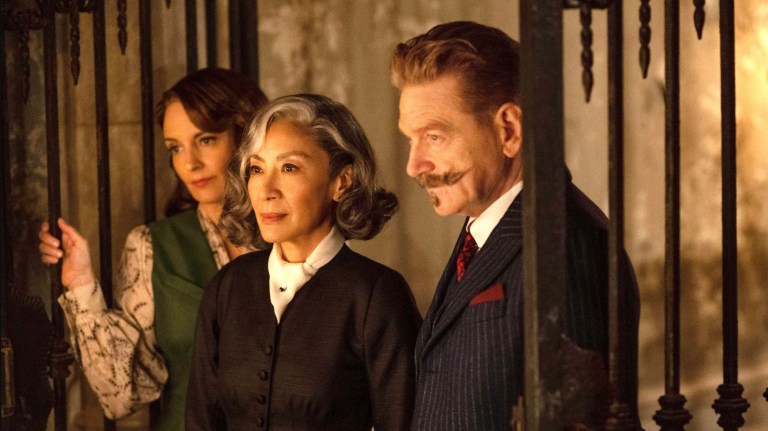
Inspired by the 1969 Agatha Christie novel Hallowe’en Party, this mystery film sees Hercule Poirot retired and living in Venice. He is invited to a Halloween séance by an opera singer intent on exposing the medium as a fraud. However, the medium instead captures the singer’s attention by claiming that her daughter was killed by one of the guest’s in attendance.
Longlegs (2024)
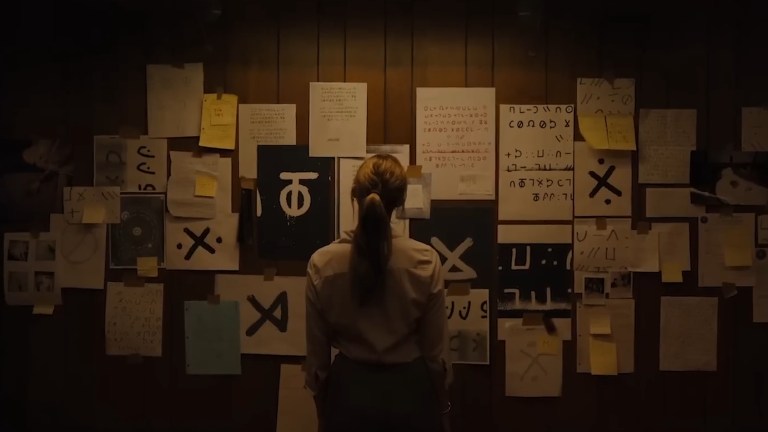
A scary and unsettling horror thriller about a new FBI agent, Lee Harker (Maika Monroe) and the hunt for a prolific serial killer named Longlegs. Longlegs (Nic Cage) is somehow responsible for dozens of familicides between the 1970s and the “present day” (1990s), leaving letters with Satanic coding at each scene. Mildly clairvoyant, Harker is a gifted detective and is able to make progress in the case, leading to the identity of Longlegs.
More Detective Movies
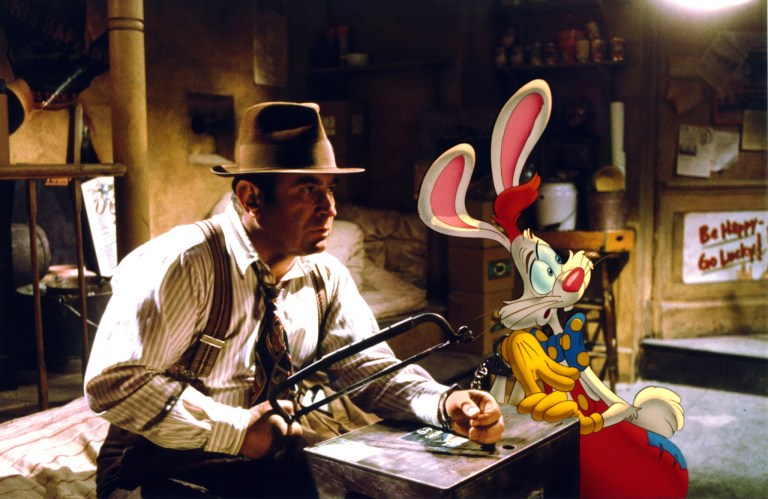
- Sherlock Jr. (1924) silent film legend Buster Keaton stars as a film projectionist who daydreams his way into a fantasy where he’s famous detective Sherlock Holmes.
- The Third Man (1949) a pulp novelist (Orson Welles) travels to Vienna to investigate the death of his friend, Harry Lime.
- Kiss Me, Deadly (1955) Mickey Spillane’s fictional detective Mike Hammer gets lured into a case involving a female hitchhiker.
- High And Low (1963) in this Japanese procedural drama by Akira Kurosawa, actor Toshiro Mifune stars as a wealthy industrialist whose family member gets kidnapped.
- In The Heat Of The Night (1967) winner of the Best Picture Oscar, this steamy Southern drama pairs Rod Steiger and Sidney Poitier as unlikely allies in trying to solve a murder case.
- Dirty Harry (1971) the first of Clint Eastwood’s series of films about unorthodox San Francisco cop “Dirty” Harry Callahan.
- Clue (1985) when the host at a formal dinner is killed, the six attending guests must figure out who did it.
- The Untouchables (1987) Kevin Costner stars as Chicago Detective Elliot Ness in his quest to take down Mafia king Al Capone.
- Who Framed Roger Rabbit (1988) Bob Hoskins plays a flesh-and-blood human detective who takes on a case involving cartoon characters in Toontown.
- Primal Fear (1996) Richard Gere stars as a defense lawyer who takes on the case of a young male from Kentucky who is charged with murdering an archbishop.
- L.A. Confidential (1997) a neo-noir set against a backdrop of 1950s Hollywood and police corruption.
- The Watcher (2000) James Spader, Marisa Tomei and Keanu Reeves star in this thriller about a serial killer who eludes capture.
- FeardotCom (2002) a New York City detective (Stephen Dorff) investigates a series of unsolved murders related to a dark website.
- Mindhunters (2004) a crime slasher movie about FBI profilers that stars LL Cool J.
- Brick (2005) a neo-noir that takes place a high-school setting.
- Inside Man (2006) in this Spike Lee joint, Denzel Washington stars as a detective involved in a cat-and-mouse game with a thief (Clive Owen).
- Sherlock Holmes (2009) an action mystery film with Robert Downey Jr as Sherlock Holmes and Jude Law as Dr. Watson.
- Prisoners (2013) following the abduction of two young girls, the detective hunts for the culprit and the fathers contemplate revenge.
- The Nice Guys (2016) finds Ryan Gosling and Russel Crowe attempting to solve a missing person’s case in 1970s Hollywood.
- Murder on the Orient Express (2017) Kenneth Branagh directs and stars as Hercule Poirot.
- Death on the Nile (2022) Branagh returns as Hercule Poirot to solve a murder mystery aboard a glamorous boat.
- Marlowe (2022) is a throwback, neo-noir style detective movie set in the 1930s about detective Philip Marlowe (Liam Neeson) and his investigation to find the missing lover of an heiress.
- See How They Run (2022) this comedy mystery sees Inspector Stoppard (Sam Rockwell) and Constable Stalker (Saoirse Ronan) are assigned to solve a case in London’s West End in the 1950s.
- Luther: The Fallen Sun (2023) stars Idris Elba as a disgraced detective who breaks out of prison to hunt down a serial killer.
- Hypnotic (2023) a police detective’s hunt for his missing daughter.
- MaXXXine (2024) Kevin Bacon portrays a crooked PI who gets his just desserts.
Further reading:
